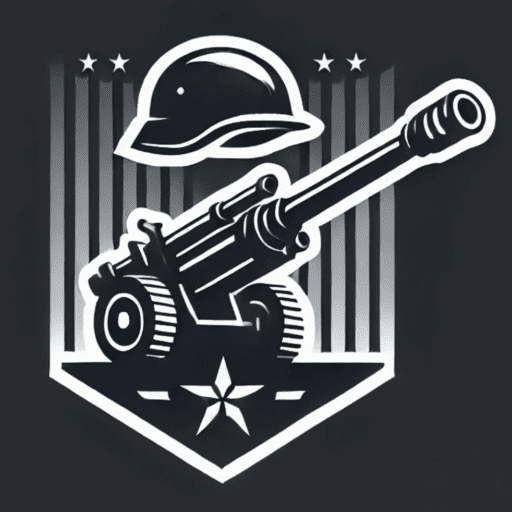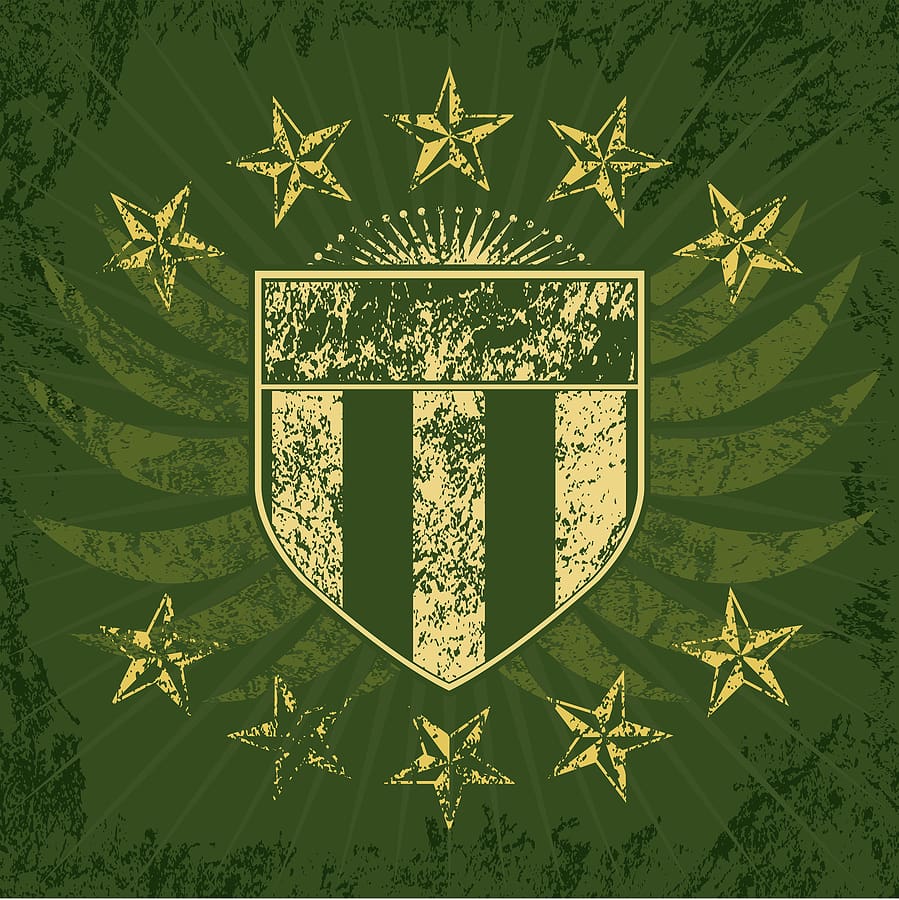Battle Philosophy
General George Patton was no fan of defense maneuvers. His philosophy was to attack, attack, attack!
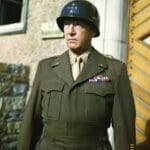
This principle often, but not always, holds true in Memoir 44. Aggressiveness, but not foolhardiness, generally pays off. It certainly helps for the attacker to be aware of the percentages for various dice throws.
“Take calculated risks, but don’t be rash.” ~~ General George S. Patton
You only score points and you only eliminate enemy figures when you are attacking. The best you can hope for in defense is to not lose figures. (Not including the Ambush! card.) Therefore you need to keep attacking whenever possible.
The 9 Principles of War (U.S. Military Doctrine)
The U.S. list draws from earlier British doctrine and even Clausewitz’s writings, though the British list from WWII had similar but slightly different terms. Many nations have their own versions, sometimes adding things like “Flexibility” or “Morale”.
-
Objective
-
Direct every operation toward a clearly defined, decisive, and attainable goal.
-
Without a clear purpose, power is wasted.
- M44: Are you trying to destroy a unit? Gain a Territorial Objective? Prevent the loss of your final unit?
-
-
Offensive
-
Seize, retain, and exploit the initiative.
-
Make the enemy react to you, not the other way around.
- M44: Attack first and force your opponent to respond to you.
-
-
Mass (Concentration of Force)
-
Concentrate the effects of combat power at the decisive place and time.
-
Overwhelm the enemy at the critical point.
- M44: Do not attack multiple hexes; use all forces on one hex at a time.
-
-
Economy of Force
-
Allocate minimum essential combat power to secondary efforts.
-
Don’t spread yourself thin—free up strength for the main blow.
- M44: Don’t waste time on unattainable objectives.
-
-
Maneuver
-
Place the enemy in a position of disadvantage through the flexible application of combat power.
-
Outflank, outthink, and outposition.
- M44: Take the hills, forests, towns before the enemy takes them. Force them back up against the border.
-
-
Unity of Command
-
Ensure unity of effort under one responsible commander.
-
One plan, one commander, one goal.
- M44: Tanks, Infantry, Artillery all must work together.
-
-
Security
-
Never permit the enemy to acquire unexpected advantage.
-
Protect your forces and your plans.
- M44: Do not let the enemy to get behind your troops.
-
-
Surprise
-
Strike the enemy at a time, place, or in a manner for which they are unprepared.
-
Shock and confusion magnify your force.
- M44: Barrage, Air Power, Behind Enemy Lines, can all surprise your opponent.
-
-
Simplicity
-
Prepare clear, uncomplicated plans and concise orders.
-
The fog of war rewards the simple and punishes the overcomplicated.
- M44: Play Smarter. Strike Harder!
-
Cohesian, Initiative, Firepower
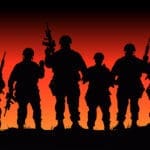
Initiative = moving in such a way as to force the enemy to respond to your threats, rather than you having to respond to the enemy’s threats.
Firepower = Concentration of power is the key to a successful attack. Rather than attacking three different targets, concentrate all three of your attacking units upon just a single unit. With a three to one ratio, your chance of success is much more likely.
Concentration of Power or Concentration of Force
In U.S. military doctrine, it appears as the Principle of Mass:
“Mass – concentrate the effects of combat power at the decisive place and time.”
The idea is to avoid scattering your strength across too many objectives. Instead, you focus overwhelming combat power at the critical point to achieve decisive results. This could be done with troops, firepower, maneuver, or even psychological effects.
Historically, it’s been applied in:
-
Napoleon’s campaigns – concentrating forces for rapid, decisive blows.
-
D-Day landings – massive buildup in one area to punch through.
-
Desert Storm – overwhelming force at the chosen breach point in the Iraqi defenses.
It’s closely related to (but not exactly the same as) the principle of economy of force, which says you should minimize effort in secondary areas so you can maximize it at the main point of attack.
Distraction & Diversion

If you are weak where your opponent is strong, then launch a diversionary movement or attack somewhere else. You might just divert their attention away from your point of weakness.
Counter-Attack
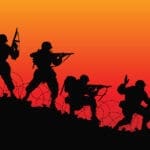
Like Distraction and Diversion, however, this is stronger. You are launching an attack that is threatening your opponents figures, or possibly even an entire hex unit.
This may cause them to pull away from an area where your forces are weak, and attempt to answer your threat.
This may buy you time, in the hopes of getting cards needed to shore up your weak defense.
Mobility

Like in a chess game, control of the center will often work to your advantage. If you can get across the central section quickly, you will be able to bring your forces to bear where they are needed.
The goal is to maximize mobility in order to capitalize on opportunity. If your troops can get quickly to where you need them to be, you can quickly respond to any battlefield conditions, or card-based attack opportunities.
Patience
Patience is required in many Memoir 44 scenarios. This would include especially the scenarios where each side is firmly embedded in strong defensive positions, such as hedgerows, towns, forests, and especially sand-bagged versions of each of these.

It is very difficult to dislodge these forces quickly.
Four of the best ways to dislodge heavily entrenched forces are:
1. Long-distance armor attacks
This is where patience is required, because you can typically only attack this with 1D at a time, which means that if the dice percentages play out, if will take 8 rolls to dislodge a full-force infantry unit.
2. Special Forces
These would include Engineer Infantry units, which can ignore terrain restrictions when battling the enemy.
3. Infantry Assaults
Cards which will allow a mass of infantry to surround a heavily entrenched position can dislodge them in one or two turns.
4. Artillery Bombardment
This is, of course, the weapon of choice when you want to dislodge entrenched forces, as it always ignores any terrain considerations. The only question is if you can get your artillery close enough to hit them with enough firepower.
Plan B

1. What happens next? And next after that?
2. What happens if it fails?
3. What happens if it succeeds?
Responsiveness
Tactics, Strategy, Logistics
An old war aphorism is:
Tactics win Engagements.
Strategy win Battles.
Logistics win Wars.
( In Memoir 44, the equivalent for logistics would be the cards you hold in your hand, which supply you with your means of attack.)
Tempo & Initiative
Do you have time to seek your VP objectives? Or are you too busy responding to enemy threats? If you do not have time to form your own plans, but are constantly countering enemy attacks, then you do NOT have the initiative. The tempo is against you. If you find yourself in this situation, you need to apply the principles of Counter-attack, Distraction & Diversion to the game.
Wholistic Gameplay
Treat the game as a whole. It is not just a series of hits against troops. You need to factor in everything happening in the game. Every game is a combination of troops, on a battlefield, seeking to achieve certain objectives (and not just destruction of units).
The game has an opening, a middle game, and an endgame. There are different objectives in each. It is a combination of maneuvers, card management, and dice rolls. There is less luck involved than you may imagine.

